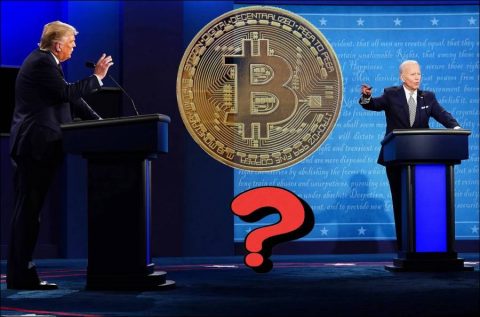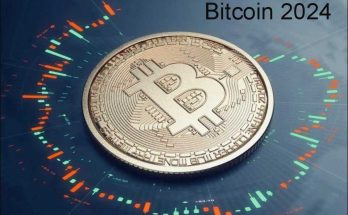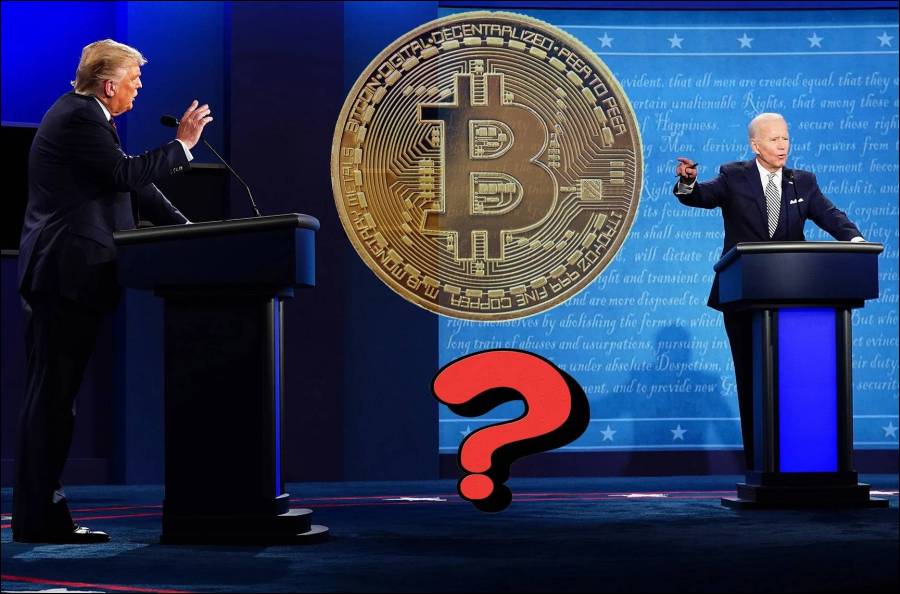Joe Biden was sworn in as the 46th President of America on January 20 and took office. We don’t know exactly what Biden or his deputy Kamala Harris think about Cryptocurrencies or Bitcoin.
Donald Trump has made it clear that he doesn’t like Bitcoin. In fact, we learned later, when former national security adviser Bolton wrote his memoirs, that the yellow head Trump even asked Treasury Secretary Mnuchin to look for ways to end Bitcoin. But the Trump administration has never attempted to ban Bitcoin. And most importantly, Brian Brooks, Chairman of the US currency and banking supervisory agency OCC, who served during the Trump era, firmly stated that they have no intentions to ban Bitcoin.
Trump was a pro-money politician, at least in rhetoric. He was trying to make the economist Judy Shelton, who advocated digitizing the dollar and connecting it to gold, president of the Federal Reserve. Therefore, his approach to a limited money like Bitcoin was actually ambivalent. Trump secretly liked and hated Bitcoin on the one hand. Trump openly said that he did not like Bitcoin. In fact, we learned later, when former national security adviser Bolton wrote his memoirs, that the yellow head Trump even asked Treasury Secretary Mnuchin to look for ways to end Bitcoin. But the Trump administration has never attempted to ban Bitcoin. And most importantly, Brian Brooks, Chairman of the US currency and banking supervisory agency OCC, who served in the Trump era, firmly stated that they have no intentions to ban Bitcoin.
Trump was a pro-money politician, at least in rhetoric. He was trying to make the economist Judy Shelton, who advocated digitizing the dollar and connecting it to gold, president of the Federal Reserve. For this reason, his approach to a limited money like Bitcoin was actually ambivalent. Trump secretly liked Bitcoin on the one hand and hated it on the other.
The new management is absolutely unlimited money. As soon as President Biden settled in the oval office, he took down the portrait of Andrew Jackson, one of the former presidents brought by Trump, and hung Benjamin Franklin instead. President Jackson is the only ruler in the history of the world to close the central bank and pay off all government debt. In any case, it is not possible for the Biden administration to finance trillions of dollars in new aid packages and environmental investments in any other way.
While Biden’s staff is slowly becoming clear, the names of the names mentioned are also complicated about Bitcoin. Gary Gensler, the former head of the derivatives markets supervisory agency CFTC, will head the US capital markets supervisory agency SEC.
Gensler knows blockchain and cryptocurrencies very well. In this respect, it is considered as a chance for the cryptocurrency industry. However, Gensler is also a famous executive for imposing tight control on the derivatives markets. He previously stated that he considered Ripple and Ethereum as securities in 2018. He emphasized that Ethereum became more decentralized later on, but before opening Ripple etc., he was negative about projects that sold coins and were centralized. Because even before the end of the Trump era, the SEC sued Ripple and caused the price of XRP to drop a lot.
Gensler does not speak out against Bitcoin. In his statements in 2018, he noted that Bitcoin is definitely not a security. Also in an article he wrote for Coindesk in 2019, he praised Bitcoin’s inventor, Satoshi Nakamoto, for finding the formula for peer-to-peer (p-2-p) value transfer on the internet without double-spending (double soending). In the same article, he criticized the minimalists, such as Nouriel Roubini, who saw Bitcoin as fraud and wanted it banned, but also said that he had a negative view of the maximalists, who made the opposite propaganda and said that Bitcoin would dominate the whole world.
However, in the same article, Gensler used the phrase “a limited digital and speculative store of value” for Bitcoin, noting that all cryptocurrencies have turned into a speculative asset class. Gensler also stated that blockchain technology could indeed be a catalyst for change.
On the other hand, former Fed Chair Janet Yellen, for whom Biden is preparing to become Secretary of the Treasury, made an important statement at the Senate confirmation session that can be considered negative in terms of cryptocurrencies. In response to a question about the use of cryptocurrencies in terrorist financing, Yellen said:
“I think a lot of cryptocurrencies are used for illegal financing, at least in terms of transactions. We really need to explore ways to make sure there is no money laundering through these channels and limit the use of cryptocurrencies.”
However, the data certainly does not confirm Yellen. According to ChainAnalysis, criminal activities accounted for only 1.2% of total transactions on the Bitcoin network in 2019, with approximately $11 billion.
Meanwhile, the press, which first made Yellen’s very negative statements in the headlines, later ‘discovered’ in the same session that Yellen was actually talking about the benefits of cryptocurrencies. Yelen used the following statements in response to another question:
The new Biden administration will of course bring its own administrator to head the OCC. For this reason, Brian Brooks, who stated unequivocally that the US has no intention of banning Bitcoin, resigned. Instead of Prof. Michael Barr is expected to be appointed. Barr is also a name close to cryptocurrencies. Barr, who previously held a senior position in the Treasury under the Obama administration, joined Ripple as a consultant in 2015. During this period, Barr stated that the current financial system was insufficient for international payments. Barr later left Ripple.
prof. Can Barr support Ripple-style centralized structures and oppose decentralized entities like Bitcoin? This is not entirely clear. Michael Barr, in an article by Naki Mendoza on Devex on January 19, 2016, put forward the following views on Bitcoin: “If you can reduce costs and improve the speed of payments, it will make access to (financial services) better for low- and middle-income people.
You can bring With low-cost services, you can contribute to the meeting of those who do not have a bank account with banking services.” In other words, Barr was hopeful of Bitcoin at that time, but Bitcoin has not made any progress in terms of speed and cheap transaction fees. On the contrary, it brought the strong value storage function to the fore.
As a result, the three important names of the Biden administration, Gensler, Yellen and Barr, do not state that they clearly support Bitcoin. Gensler and Barr also talk to some extent about the benefits of decentralized Bitcoin. Yellen, on the other hand, is more focused on the policing side of the business. He talks about some positive aspects of cryptocurrencies in general, not Bitcoin.
There is no reason to ring alarm bells right now. In particular, Gensler seems to support decentralized cryptocurrencies such as Bitcoin in a way that keeps them away from excessive speculation. It seems that a strict control view will dominate, rather than a ban.
I personally have no objections to this as long as it is not taken to the extreme. I even give support in terms of integration with the existing system and facilitating the adoption of large masses. Of course, it would be much better if a name from the Biden administration came out and clearly stated that they do not intend to ban Bitcoin, just like Brian Brooks did.
Visits: 95




